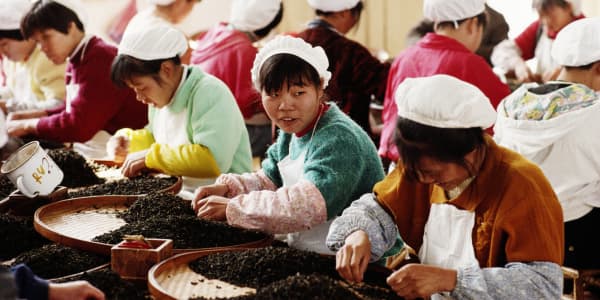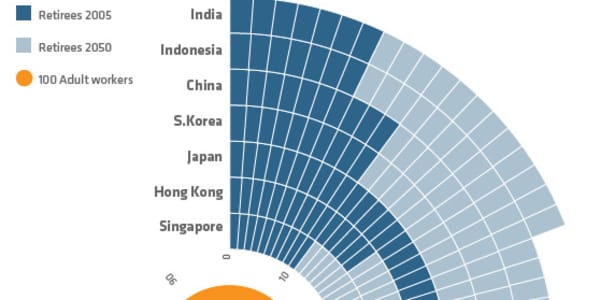In China, a country that values tradition and respect for its elders, a new law allowing seniors to take their children to court for neglect might appear out of place.
However, the Elderly Rights Law, which came into effect in July, has struck a chord at a time when the world's second-largest economy is grappling with a fast-aging population.
"I saw about [the new law] on TV – I can now sue my own children if they don't come and visit me!," says Chen Jianguo, a 72-year old retiree living in Beijing, China's capital city.
(Read more: Aging in Asia: A CNBC Special Report)
"I think there needs to be a law like this. Young people these days… I'm very disappointed, so many old people spend their time alone," he added.
The United Nations expects more than a quarter of China's population to be over the age of 65 by 2050. It forecasts the population, currently at about 1.35 billion, to peak in 2030.

A one-child policy introduced in 1979 has contributed to falling birth rates, while life expectancy, aided by a boom in the economy, has risen.
"From an economic perspective, the elderly rights law highlights some of the tremendous pressures that China is facing because society is aging more rapidly than we are probably seeing any other society age," said Frederic Neumann, HSBC's Co-Head of Asian Economics Research.
(Read more: China will get old before it gets rich)
"An aging population is a real economic challenge, not just in terms of financing care for the elderly but how to sustain economic growth overall, given that the working-age population continues to shrink," he said.
China, together with Asian peers Hong Kong and South Korea, will see its labor force shrink over the next decade, says Bank of America Merrill Lynch (BoAML).
It expects the median age in China to rise to 42.1 by 2030 from 34.6 in 2010. Compare that with Asian rival India, which BoAML expects to have a median age of 31.3 by 2030.
(Read more: India braces for unprecedented 'silver tsunami')
Changing Times
Analysts say a few reasons help explain why neglect of the elderly has become an issue in China.
Migration into cities has meant many Chinese live away from their parents, making it harder to fulfill that traditional role of caring for the elderly, while the one-child policy has increased the financial burden for one person to look after two aging parents.
(Read more: The aging in Asia face a decade like no other)
"Children do not stay in the same city so they don't look after their parents and many move around constantly, some are even overseas which is making it even harder," said Liu Chengji, a former university professor and librarian before he retired.

The International Labor Organization says that China has the most extensive internal migration in the world. Earlier this year, Chinese media reported that the number of workers who left their villages last year amounted to 210, 610 migrants – 3.9 percent more than in 2011.
Time to sue?
The modernization of China's economy is also blamed for eroding traditional values such as caring for elderly family members.
(Read more: Retirement homes are no longer taboo in Asia)
"China has always stressed the need to love, respect and take care of your parents. But now, some young people are so mean," said Wang Feng, a 66-year old woman, who has two grown-up sons who she says sometimes forget to call or visit. "It's all about money, money and more money."
HSBC's Neumann says China's government is not just trying to put the onus onto the children of seniors when it comes to an aging society. He points out that since the mid-2000s, the state has taken important steps such as establishing a pension system, although more needs to be done to make services such as health care more accessible.
And while the new elderly rights law has come under some criticism, for some members of China's elderly population, the importance of the new law is the message it sends.
Asked whether she would sue her children for neglect under the new law, Wang had this warning: "I would like to have full-time care and support but I know this is hard, so what I want is a phone call every now and then a visit. If I get disappointed, I'll sue you to teach you a very important lesson."
—By CNBC.Com's Dhara Ranasinghe and Wendy Min; Follow Dhara on Twitter @DharaCNBC




